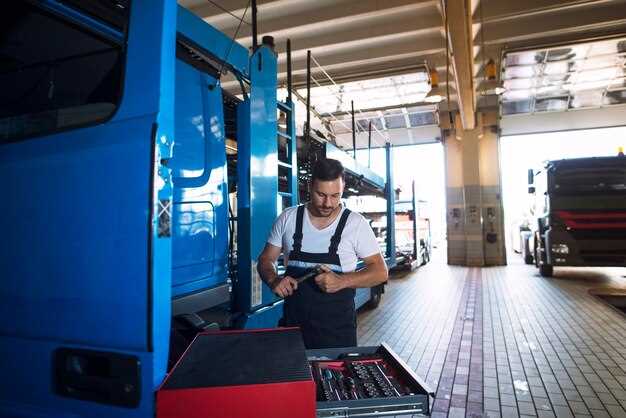
In today’s competitive marketplace, businesses are constantly seeking ways to optimize their operational efficiency and reduce expenses. One effective strategy that has gained popularity is leasing work trucks instead of purchasing them outright. This approach offers a range of benefits that can significantly impact the bottom line and overall productivity.
Leasing work trucks allows businesses to preserve capital. Instead of making a large upfront investment, companies can allocate their funds towards other critical areas such as marketing, technology, or expansion. This flexibility can be particularly beneficial for small to medium-sized enterprises that may not have substantial reserves.
Moreover, leasing provides access to the latest models and technology without the burden of depreciation. Businesses can stay ahead of the curve by utilizing newer, more efficient vehicles equipped with advanced features that enhance performance and safety. This not only improves service delivery but also reinforces a positive brand image in the eyes of clients and customers.
Another significant advantage of leasing work trucks is the predictable monthly expenses. Leasing arrangements often include maintenance packages, which helps companies manage their budgets more effectively. By avoiding unexpected repair costs, businesses can maintain a more stable financial outlook and plan for future expenses with greater accuracy.
In conclusion, leasing work trucks offers unique advantages that can enhance operational capabilities while managing costs. By considering this option, businesses can improve their financial strategy, keep pace with industry advancements, and ultimately drive greater success in their endeavors.
Cost Management: Understanding Monthly Payments vs. Upfront Costs

When considering leasing work trucks, one of the pivotal factors for businesses is the management of costs. Leasing presents a unique financial structure that contrasts with purchasing outright. With leasing, companies typically make monthly payments rather than incurring a significant upfront cost associated with buying a vehicle.
Monthly payments allow businesses to better manage their cash flow. Instead of allocating a large sum of money at once, companies can spread out expenses over time. This flexibility enables businesses to maintain liquidity and invest in other areas, such as staffing or marketing, which can contribute to growth.
Moreover, leasing often includes maintenance and service agreements within the monthly payment. This means that businesses can predict their truck-related expenses with greater accuracy, avoiding unforeseen costs associated with repairs or maintenance. In contrast, upfront purchases place the entire responsibility for upkeep on the owner, which can lead to fluctuating costs.
Leasing also offers the advantage of tax benefits. Monthly lease payments can often be deducted as a business expense, thus offering potential tax savings. This differs from purchasing, where depreciation must be accounted for on a large asset over time, potentially complicating financial forecasting.
In summary, understanding the difference between monthly payments and upfront costs is crucial for effective cost management. Monthly payments through leasing provide businesses with flexibility, predictable costs, and potential tax advantages, making it an attractive option for many industries. By evaluating these factors, businesses can make more informed decisions that align with their financial strategies and operational needs.
Flexibility: Adapting Your Fleet to Seasonal Demand Changes

One of the primary advantages of leasing work trucks is the flexibility it provides businesses to adapt their fleet according to seasonal demand changes. Businesses often experience fluctuations in their operational requirements based on the time of year, and leasing allows for a more dynamic approach to fleet management.
When demand surges, especially during peak seasons, businesses can quickly scale up their fleet by acquiring additional trucks through leasing agreements. This eliminates the need for substantial capital investment in purchasing new vehicles, thereby reducing financial strain. Companies can acquire the necessary vehicles for a limited period, ensuring they can meet customer needs without overextending their budget.
Conversely, during off-peak seasons, leasing allows businesses to downsize their fleet effortlessly. Trucks that are no longer needed can be returned at the end of the lease term, freeing up resources and reducing ongoing maintenance costs. This operational agility enables companies to align their resources more closely with current market demands.
Moreover, leasing companies often provide the option to adjust lease terms based on the business’s changing needs. This flexibility can include options for short-term leases or even the ability to switch out vehicles for different models that are better suited for specific seasonal tasks.
In conclusion, the ability to adapt fleet size and vehicle type according to seasonal demand changes provides a significant competitive advantage. By leasing work trucks, businesses ensure they remain responsive, efficient, and financially sound in the face of ever-changing market conditions.
Maintenance: Streamlining Upkeep Responsibilities and Costs
Leasing work trucks presents a significant advantage when it comes to maintenance responsibilities and costs. By choosing to lease rather than purchase, businesses can simplify their vehicle upkeep while optimizing expense management. Here are several ways leasing contributes to maintenance efficiency:
- Included Maintenance Services: Many leasing agreements offer inclusive maintenance packages that cover basic services such as oil changes, tire rotations, and inspections. This not only saves time but also reduces unexpected costs associated with truck upkeep.
- Predictable Cost Structure: Leasing provides a more predictable cost structure. Since maintenance expenses are often covered in the lease terms, businesses can budget more effectively without the worry of fluctuating repair bills.
- Access to Latest Technology: Leasing allows businesses to regularly upgrade to newer models, which typically come with better technology and improved reliability. This reduces the likelihood of breakdowns and the associated maintenance costs.
- Manufacturer Support: Leased trucks are often covered by warranties from the manufacturer, thus minimizing potential repair costs. In case of mechanical issues, businesses can rely on the leasing company or manufacturer for assistance, further simplifying the maintenance process.
- Dedicated Maintenance Plans: Leasing companies often offer tailored maintenance plans that can meet the specific needs of a business’s operations. These plans help ensure that vehicles are maintained according to recommended schedules, maximizing their performance and lifespan.
In conclusion, leasing work trucks can drastically enhance maintenance efficiency while controlling costs. By simplifying upkeep responsibilities and offering financial predictability, businesses can focus more on their core operations rather than worrying about vehicle maintenance.




